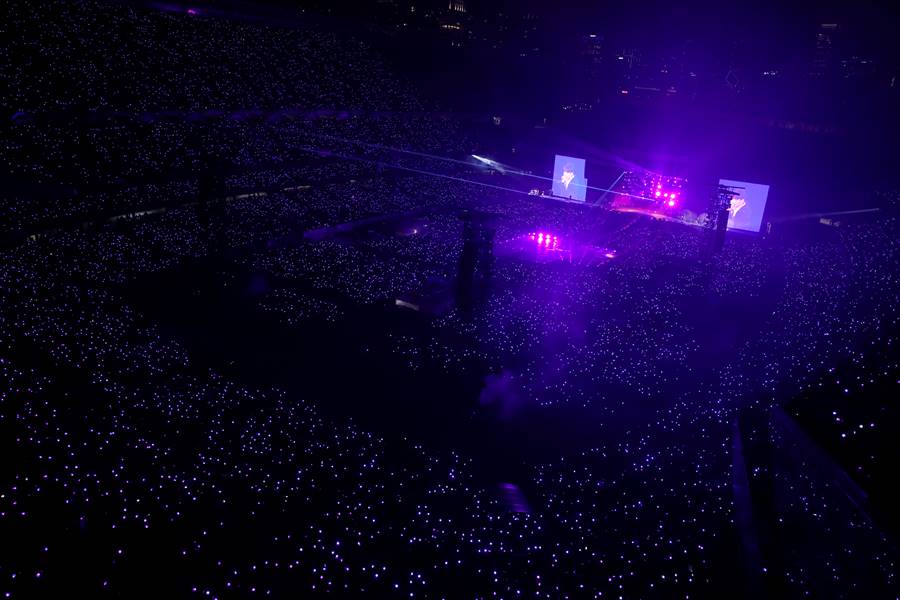
By Jae-Ha Kim
jaehakim.com
May 14, 2022
I often get asked to give quotes for various publications. Sometimes they make it in the articles. Other times they don’t. It happens. While I was cleaning out some files, I found these quotes about BTS that I gave to USA Today back in 2019. I think most of them are still relevant to who they are today.
Q: When did you first discover BTS?
A: I was aware of them since their beginning, but really started paying attention around 2016, when my child began to listen to them a lot. Kids are smart that way! 🙂
Q: What is it about them that you love so much?
A: First, it was the music that grabbed my attention. They are exceptional rappers and vocalists with voices that draw listeners in. Once they have your attention, you realize that what they are singing about is quite bold. Their lack of fear is refreshing. Their messages align with my viewpoints, so of course that helps. Songs don’t have to make you think to enjoy them, but it sure doesn’t hurt. Once I was hooked by their music, my son and I started watching Run BTS, Eat Jin and all their clips. Their humor is addictive and it’s something we can watch together as a family. As a mom, I also like that he’s learning Korean by listening to them and watching their antics.
Q: When did you first write about them? What kinds of stories have you written?
A: Early 2017. I interviewed RM (he went by Rap Monster back then) for my syndicated newspaper column, which ran in outlets like the Chicago Tribune and Los Angeles Times. Prior to that, they weren’t perceived as famous enough in the U.S. for the outlets I write for to want anything on them, unfortunately. We talked mostly about how their travels have affected them as musicians. And Namjoon talked a bit about how he wished he had let go a little in school, but he was a very good student and didn’t want to rebel. I explored that last aspect in a Rolling Stone essay I wrote about their popularity. In that piece, I addressed how meaningful their lyrics are and how they don’t back down when it comes to singing songs that aren’t necessarily equated with pop music — songs about depression, inequality, the pressure for young kids to succeed at all costs. I’ve also reviewed their albums and concerts for Variety.
Q: Why did you want to write about them in the first place?
A: For most of my career, I’ve wanted to include more coverage of Asians and Asian Americans into my articles. Often, I’ve received pushback, not necessarily because the editors are racist, but because they don’t think the artists will resonate with their readers. I can remember a newsroom meeting where I wanted to write about a guitarist for a rock band who happened to be Asian American. One of the editors said, “We just wrote about an Asian.” (The other Asian was classical cellist Yo-Yo Ma.) Unofficial quotas like this still exist, which is why there needs to be more diversity in newsrooms, not just so there will be more articles about BTS, but so it won’t seem odd to write about who is making news, regardless of their ethnicity. Anyhow, so getting back to BTS, in 2017, they were already famous internationally, but were on the cusp of becoming superstars in the U.S. I wanted to help introduce them to the general public.
Q: What do you think makes BTS stand out so much from other artists?
A: There are so many great musicians of all races who will never become household names. That doesn’t mean they don’t deserve recognition. It just means that they don’t resonate with the public for whatever reason. BTS has that “It” factor. They’re smart, talented, funny, goofy and, of course, they’re handsome. They were young when they started out. Jungkook was only 15. But they had patience and never seemed to be in a hurry to reach the top. They took their time to really figure out who they were and what they wanted to get across and that resonated with fans. Students don’t become doctors just because they want to. They have to study for four years in college, four more years of medical school, followed by residency. Dreams can become reality, but there is work involved and BTS never seems to tire of putting in the hard work.
Q: Why do you think they have had so much success so far in the American music industry?
A: Would BTS have been successful in the American music industry in the 1980s or 1990s? Absolutely not. The majority of Americans were not ready to listen to songs not sung in English, which is why foreign bands catered to the U.S. market. Groups like Sweden’s ABBA, Germany’s Scorpion and Norway’s A-ha sang in English. RM’s ability to speak English so well certainly helped when the group did interviews with Western media. Yes, a translator or interpreter can get the message across. But when it comes straight from the artist, it’s more meaningful.
Q: Despite such success, it does seem as if they are still not given the same recognition as other drivers in the industry (such as the big name artists, Taylor Swift, Ariana Grande, Ed Sheeran, etc.) — What do you think is the reason behind that?
A: I’ll answer this along with your followup question here about the VMAs. The VMAs probably thought they were being inclusive when they created the K-pop category. I would’ve been OK with that if they had also nominated the Korean artists in the other marquee categories. How do you exclude the only group who had three No. 1 albums in less than a year for the top categories? They were the first group since the Beatles to do that. They’ve earned the right to have a seat at the table. Also, this is the Video Music Awards. There aren’t any music videos by Western artists this year that can touch anything that BTS has released. The VMAs isn’t a prestigious awards show like the Grammys, but it has always been a fun show. That doesn’t give them the excuse to be exclusionary. It just makes them come across as racist, not knowing what to do with all these popular Korean groups. How about treating them like everyone else? It’ll be interesting to see how other awards programs categorize them — whether they relegate them into a competition with just other Korean artists, or they give them a seat at the table with the other artists who haven’t been shoved into a niche.
Q: What are some factors you think are inhibiting BTS from reaching their full potential in America?
A: Their full potential as artists has nothing to do with popularity. Boy bands generally don’t get a lot of respect from journalists regardless of what language they speak. But if they were a white boy band singing in English, I’m positive their songs would get more attention and radio play.
Q: But also — what are some of the factors that have helped them come this far. As a journalist, I would love to hear your perspective on the way the media treats BTS, especially in America.
A: I have covered a lot of boy bands — the New Kids on the Block, New Edition, Hanson, Jonas Brothers, ‘N Sync, Backstreet Boys. Generally, whenever they came to Chicago, I was assigned to interview them and review their albums and concerts, sometimes twice in the same year. Small Western acts would get coverage in Chicago. But not so with BTS — not until their stadium tour earlier this year. I would tell my colleagues about why they needed to send their music critic to review the concerts and nobody wanted to hear about it. Fans think that mainstream publications are clamoring to cover BTS and other Korean artists, but it’s just not true in many parts of the U.S. where some editors think only international fans — which is code for non-white fans — like them. This is one illustration of how the media values white voices over minorities. It’s great that music publications are covering them, though, because that can only help normalize Korean music in the U.S.
NOTE: ETA missing phrase and fix grammar. Meh.
© 2022 JAE-HA KIM | All Rights Reserved






One thought on “What Makes BTS Standout?”